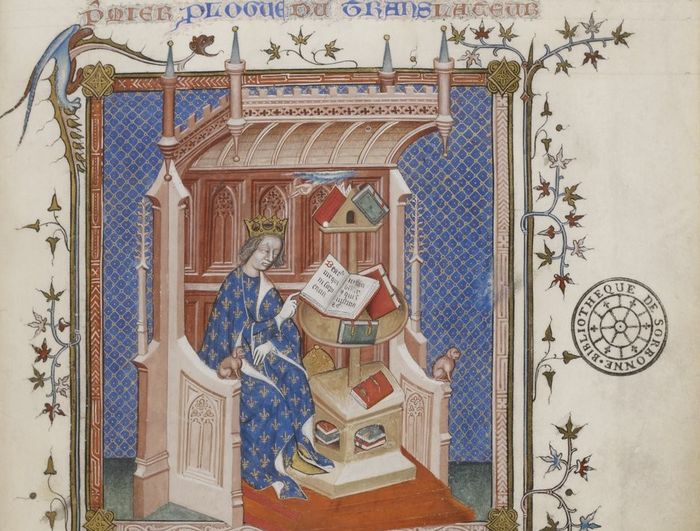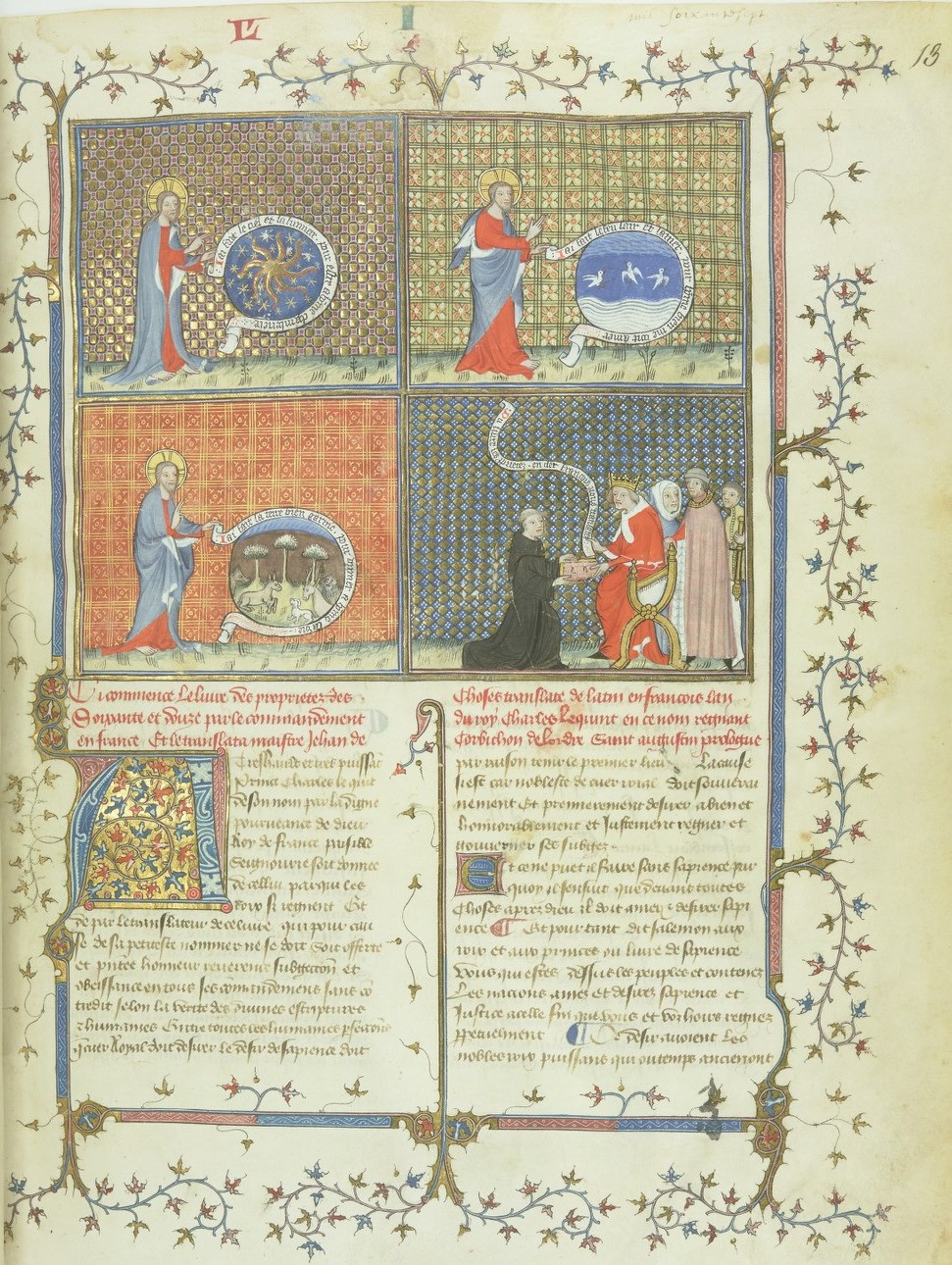Creating digital corpora
Europeana Regia, a digital library of royal collections
Europeana Regia brings together in a multilingual virtual space three royal collections from the Middle Ages and the Renaissance that are now dispersed: the Carolingian manuscripts, the Library of Charles V and Charles VI, and the Library of the Aragonese Kings of Naples.
This digital reunification project has enabled the digitisation of more than 900 manuscripts from the 7th to the 16th century from the collections of the BnF, the Royal Library of Belgium, the Herzog August Bibliothek in Wolfenbüttel and the Bavarian State Library in Germany, the Library of the University of Valencia in Spain and 15 French libraries, with the purpose of making them accessible via Europeana.
The Art of Reading in the Middle Ages
The “Art of reading in the Middle Ages - ARMA” project explores the role played by reading practices in the Middle Ages in the construction of European identity, through the creation of a European collection of medieval objects and manuscripts.
Coordinated by the National and University Library of Slovenia between 2020 and 2022, it has led to the creation of a corpus of more than 34,000 digitised reproductions of medieval manuscripts, incunabula and objects produced between 500 and 1550, from eight European libraries and museums, including the BnF. This corpus can be accessed on Europeana, where a series of editorial and educational resources, as well as the implementation of semantic enrichment and visualisation activities, make it easier to discover and get to grips with the content.
Discover all the project’s content on the page dedicated to the Middle Ages on Europeana
The Rise of Literacy in Europe
The Rise of Literacy project has increased the number of collections accessible via Europeana on this theme and has enabled its users to learn about the evolution of reading and writing practices and their spread, from the Middle-Ages to the present day.
Coordinated by the National Library of Slovenia, the project brought together 13 partners between September 2017 and February 2019, including nine national libraries (Scotland, France, Greece, Latvia, the Netherlands, Wales, Portugal, Serbia and Slovenia), the Berlin State Library, the Italian Union Catalogue, the Vocabulary Institute of the National Research Centre in Italy and the Europeana Foundation.
Its achievements include:
- an online exhibition: “The Rise of Literacy in Europe”;
- two thematic collections: “Manuscripts” and “Newspapers”, which can be seen on Europeana;
- 29 articles on the Europeana blog;
- 6 galleries.
The BnF has digitised three journals and 45 periodicals representing 351,000 pages. It has also developed an innovative prototype International Image Interoperability Framework (IIIF) for the mediation of Gallica, which can be seen in the series of articles on the Gallica « À la loupe » (A closer look) blog. On this same blog, a series of articles entitled « Europe des savoirs » (Europe of Knowledge) has been launched.
The Rise of Literacy and ARMA projects are co-financed by the European Union’s Connecting Europe Facility programme: grant agreement INEA/CEF/ICT/A2016/1332086 for Rise of Literacy (September 2017-February 2019) and grant agreement INEA/CEF/ICT/A2019/2072436 for ARMA (October 2020-July 2022).




